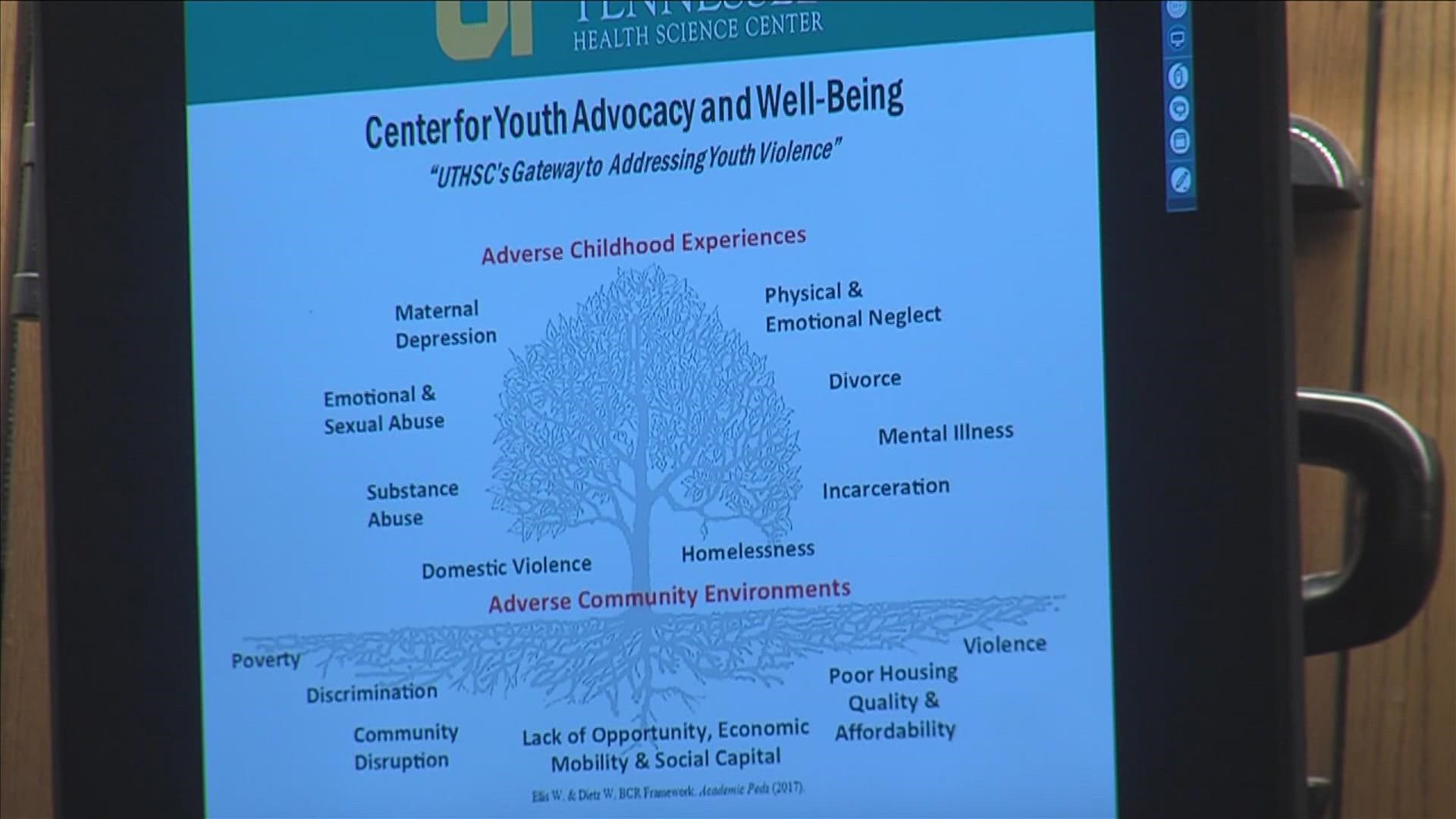MEMPHIS, Tenn. — Tennessee’s State of the Child report showed that 41% of our youth face at least one adversity. That's higher than most other states.
Here's what the University of Tennessee Health Science Center is doing to reach youth.
UTHSC’s Center for Youth Advocacy and Well-Being Director, Dr. Altha Stewart, uses a model of a tree to demonstrate adversities that youth experience both community-based and personal.
“Underground, there is poverty. There’s racism. There’s a lack of opportunities for employment and engagement. There’s community violence,” said Dr. Stewart. “Above ground, if you don’t have some basic positive things in the soil, your tree is not going to grow strong. It’s not going to withstand those things that we all go through in life.”
It's Dr. Stewart’s approach to youth.
“We have to listen to our young people. They may not know everything, but this is their environment, their universe. They know what they’re up against,” said Dr. Stewart.
The Center for Youth Advocacy and Well-Being stands in the fight with youth. They start with language first.
“We do not call a child juvenile,” said Dr. Stewart. “Anything that is not stigmatizing and conjuring up that negative image of just another bad kid.”
After an approach to language, the center turns to intervention.
“It’s not what’s wrong with you. It’s what’s happened to you,” said Dr. Stewart. “We work with them to identify the trauma that they’ve been exposed to.”
They have six programs for youth. There is a program for kids under the age of 10, two programs for gang and violence prevention, a program for those exposed to trauma who have been injured, a program for families, and another for mental health care.
“Family members can actually get training to go and help with other families. It is a Medicaid reimbursed service. It’s not just helping the family from the treatment standpoint. For many families, it’s a gateway to employment,” said Dr. Stewart.
It is a way out of the challenges youth face within themselves.
“The best thing that we can do to help a child not go that way is to be there for them and help them go this way being positive, this trajectory being an outcome where they have a future where the likelihood of an early death is every day in front of them,” said Dr. Stewart.
The center is also working with juvenile court for Shelby County’s first juvenile reentry program. They will interact with youth before they return to the community.

